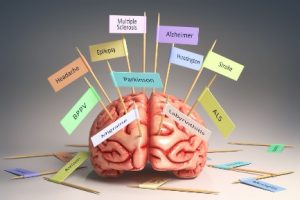Learn evaluation and treatment protocols most appropriate for medically complex older persons with neurological dysfunction. This course will focus on clinical decision making to prioritize key exam findings and develop appropriate treatment strategies in light of complex presentations and co-morbidities. Modifying functional mobility training and therapeutic exercise will be discussed.
Evidence-based information on specific neurological assessment and treatment of older clients with Parkinsons Disease, Stroke, Alzheimers Disease, balance and gait disorders, neuro-sensory pathologies, and pain problems will be provided. An evaluative model for looking at neurological dysfunction from a complex medical perspective across the spectrum of care will be addressed. The major pathologies that will be highlighted include Parkinsons disease, Cerebral Vascular Accidents, and the neurological manifestations of Alzheimers disease. A focus on balance and falls, functional mobility, evaluation of numerous causes of dizziness and physical changes, and treatment interventions aimed at decreasing the incidence of falls will also be included.
At the conclusion of this course the participant will be able to:
Identify treatment strategies that promote optima lmobility and function.
Modify functional mobility training and therapeutic exercise appropriate for the frail elderly and medically complex neurologic patient.
Identify strategies that decrease length of stay, decrease readmission and keep patients at home promoting functional mobility and independence.
Determine appropriate assessment and intervention approaches in light of complex physiologic presentation and co-morbidities.
Evaluate clients with Parkinsons, Stroke, Alzheimer’s Disease utilizing multiple physical and functional assessment tools and design effective treatment interventions to maximize function.
Develop specific approaches to assess and intervene with balance and falls in the older person using a variety of screening and evaluative tools and innovative interventions including environmental design.
Understand the key exam findings in light of complex neurologically involved patients which impact clinical decision making in prioritizing treatment approaches.
Jennifer M Bottomley, PhD, MS, PT, a dynamic and popular instructor, has a bachelor degree in Physical Therapy from the University of Wisconsin, Madison and an advanced master’s degree in PT from the MGH Institute of Health Professionals in Boston, MA. She has a doctoral degree in Gerontology (U of Massachusetts) and Health Science and Service Administration (Union Institute) and a second PhD from The Union Institute in Health Service Administration, Legislation, and Policy Management with a specialty in Gerontology. She is Director of Rehabilitation Services for the Committee to End Elder Homelessness/HEARTH and is on the Board of Directors for HEARTH. Dr. Bottomley has served on advisory boards for the Office of the Surgeon General and the Office on Women’s Health in the department of HHS and the White House Health Care Reform Panel for Home & Long-Term Care issues in the Elderly. She was a delegate to the 2005 White House Conference on Aging. In 2007, she was appointed to the White House Interdisciplinary Medicare Reform Advisory Board. She is currently serving on an interdisciplinary AARP panel addressing Elder isolation. Jennifer is the recent past President of the International Physical Therapists working with Older People (IPTOP) – a section of WCPT and is the served as president of the Academy of Geriatric PT of the APTA. Dr. Bottomley recently retired as Associate Professor at Simmons University in Boston and continues as an Adjunct Faculty at Simmons and at MGH Institute of Health Care Professions.
Jennifer's passion for what she does is contagious in her presentation. I loved the real-life stories that added humor. I would definitely attend another seminar with her! -Courtney Harris, PT
Fortunate is the student who has Jennifer Bottomley for an instructor and mentor, and fortunate is the patient who has her for a physical therapist! She is what we all should aspire to be. Information is presented clearly and concisely with a dose of humor to keep it entertaining and maintain our attention span. Her love and her knowledge of her subject matter shine through, as does her compassion and empathy for those with whom she works. The information she presents is practical and doesn't require lots of time or expensive equipment. -Barbara Williams
VENUE ADDRESS
John Heinz Institute of Rehabilitation Medicine
150 Mundy Street
Wilkes-Barre Township, PA 18702
Directions
VENUE LOCATION MAP
Click image to access Google Maps.
This course meets the criteria for 13.5 contact hours (1.35CEU’s).
Application has been made to the NJ Board of Physical Therapy Examiners. Approved by the PA State Board of Physical Therapy. The AR and IN Board's of Physical Therapy accept other Board's approvals. NY: Approved provider by the NY Board of Physical Therapy for 16.2 contact hours.
Approved provider of continuing education by the American Occupational Therapy Association #3043 - 13.5 Contact Hours (1.35 CEU's) - Intermediate Level. Occupational Therapy Process: assessment, intervention. The assignment of AOTA CEU’s does not imply endorsement of specific course content, products or clinical procedures by AOTA.
Education Resources, Inc. is approved by the Board of Certification to offer 13.5 continuing education units for Certified Athletic Trainers.
NBCOT professional development provider-13.5 PDU's.

